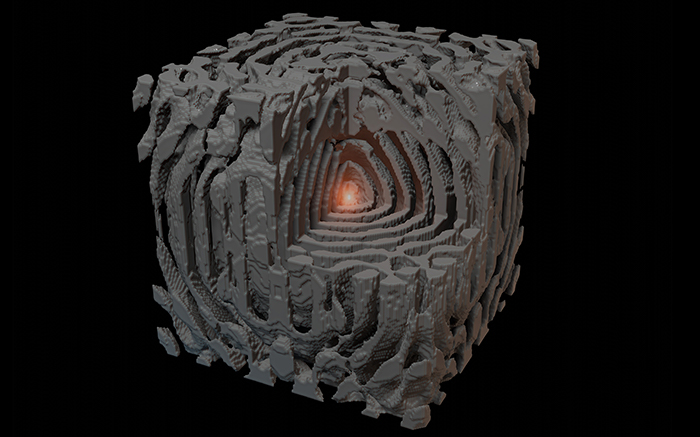Optics & photonics
Optics & Photonics is dedicated to the comprehensive study of light. We are driven by intellectual curiosity and the pursuit of developing innovative applications that address societal needs. At the Karlsruhe Institute of Technology, our researchers focus on novel methods for light generation and the study of light's propagation and its interaction with various forms of matter. The scope of light we investigate spans a wide range of frequencies, from X-rays to ultraviolet, visible, infrared, and terahertz regions of the electromagnetic spectrum.
Our research seeks to address fundamental scientific questions within Optics & Photonics but also creates tools and methodologies from which a broad range of scientific disciplines benefit. Our work is deeply interconnected with materials science and follows a holistic approach. This involves the development of technology to fabricate advanced photonic materials, exploring new strategies to manipulate light’s properties using these materials, and integrating them into functional devices. We combine experimental, theoretical, and computational approaches to achieve breakthroughs.
In recent years, material-oriented research within Optics & Photonics has expanded into exciting new areas, such as metamaterials, nanophotonics, biophotonics, and quantum optics. These advancements have profound implications for developing highly efficient solar cells, ultrafast optical communication systems, and novel quantum devices. As we continue to push the boundaries of what is possible, our work remains at the intersection of fundamental science and applied technology, constantly striving to solve complex challenges and open up new frontiers for future innovations.
Through these efforts, Optics & Photonics makes significant contributions to a wide range of scientific and technological disciplines, including
- Information and Communication Technologies
- Integrated Photonics
- Photovoltaics and Optoelectronics
- Additive Manufacturing
- Biophotonics
- Photonic Quantum Technologies
These contributions are not just academic exercises. They drive innovation and shape the future of multiple fields. Our work in Optics & Photonics is not just about understanding light, but about harnessing its power to create solutions that benefit society and drive industrial progress.



